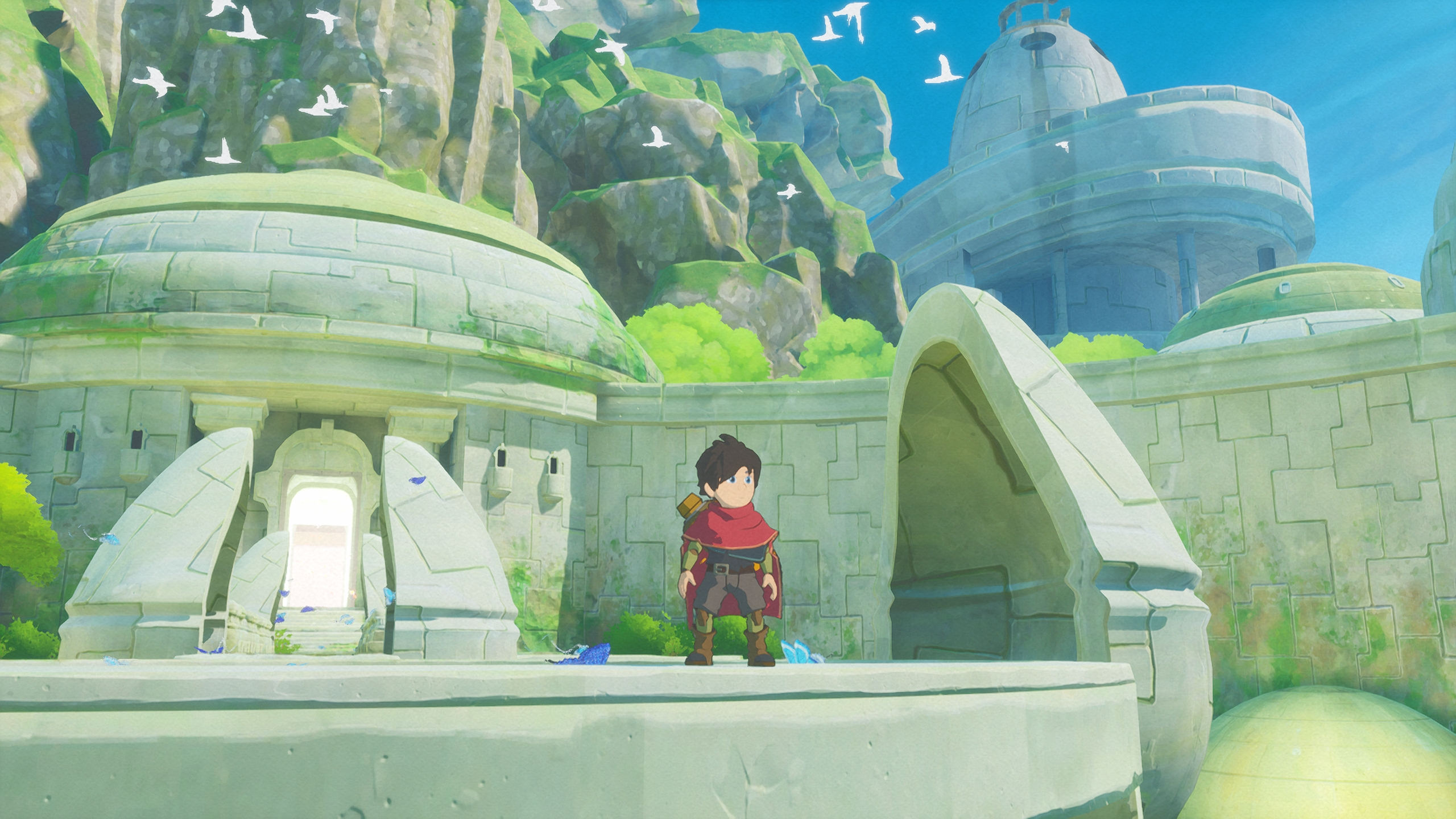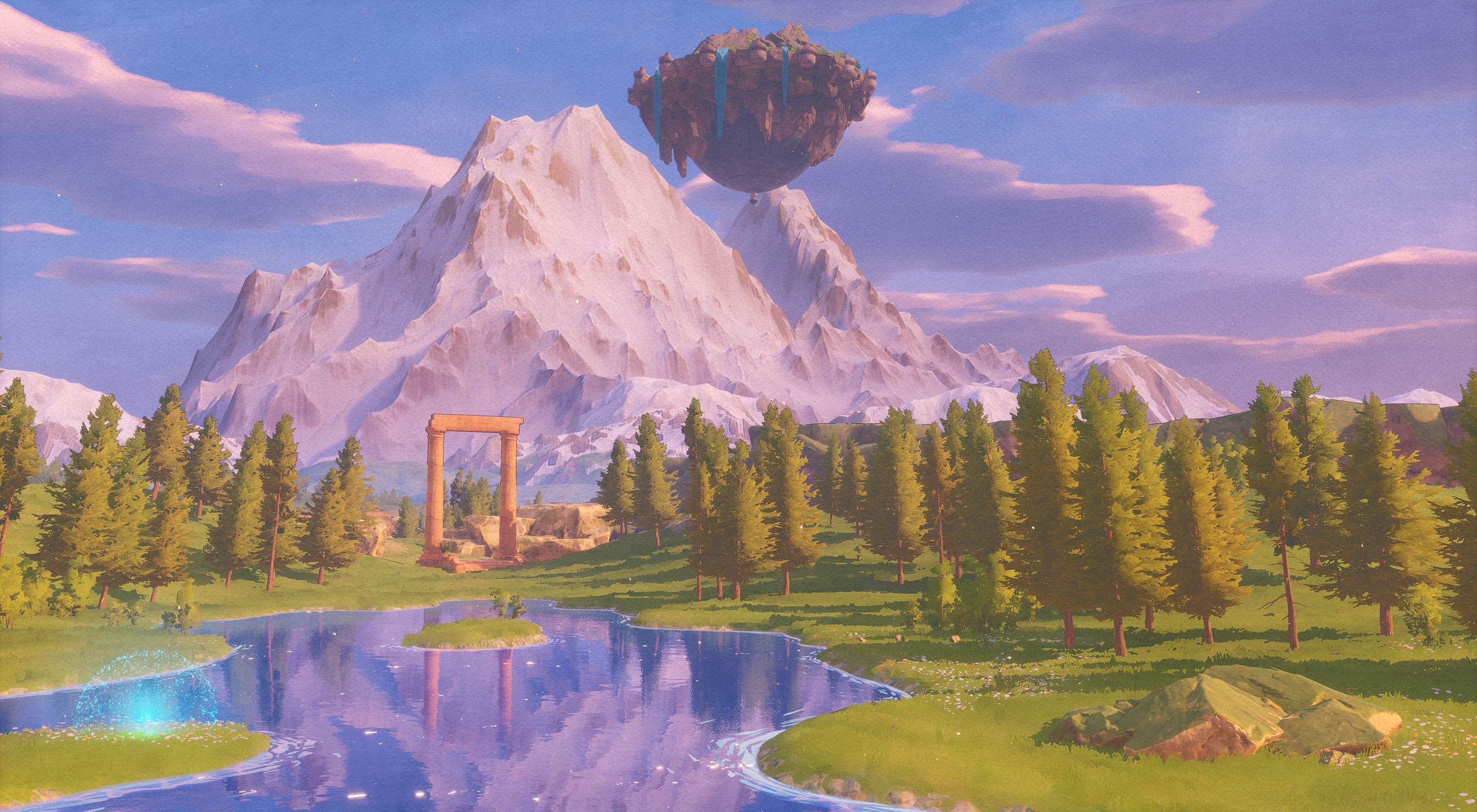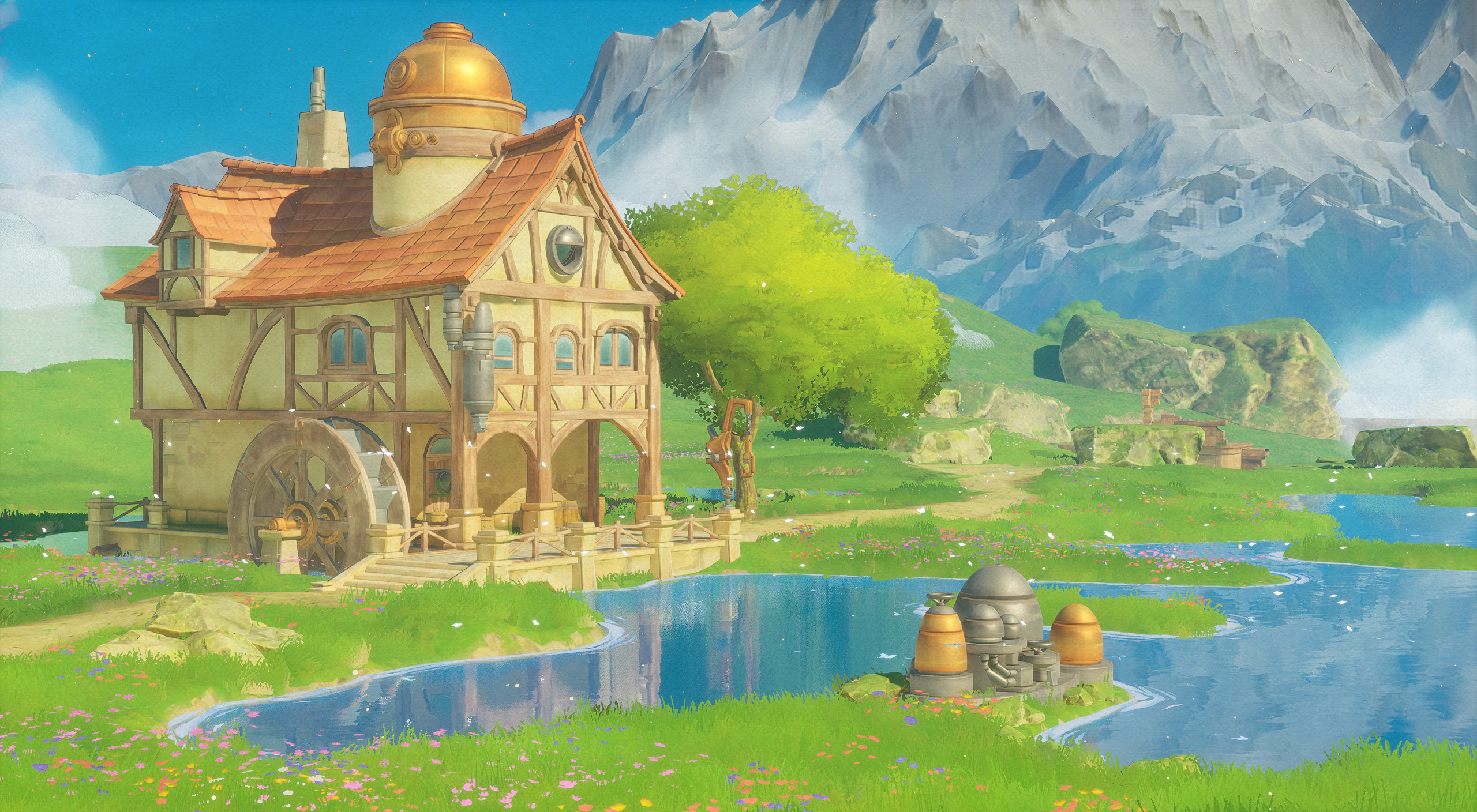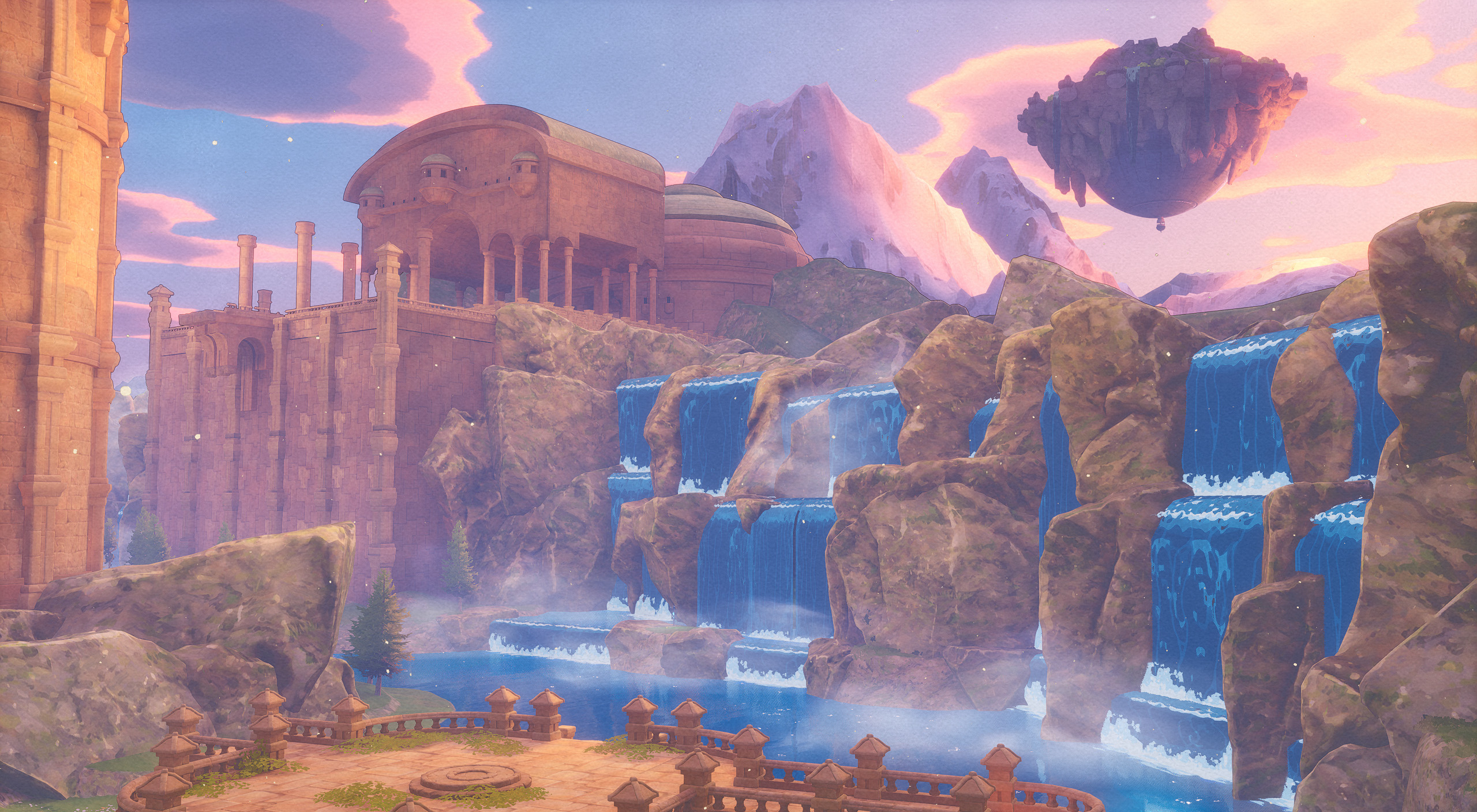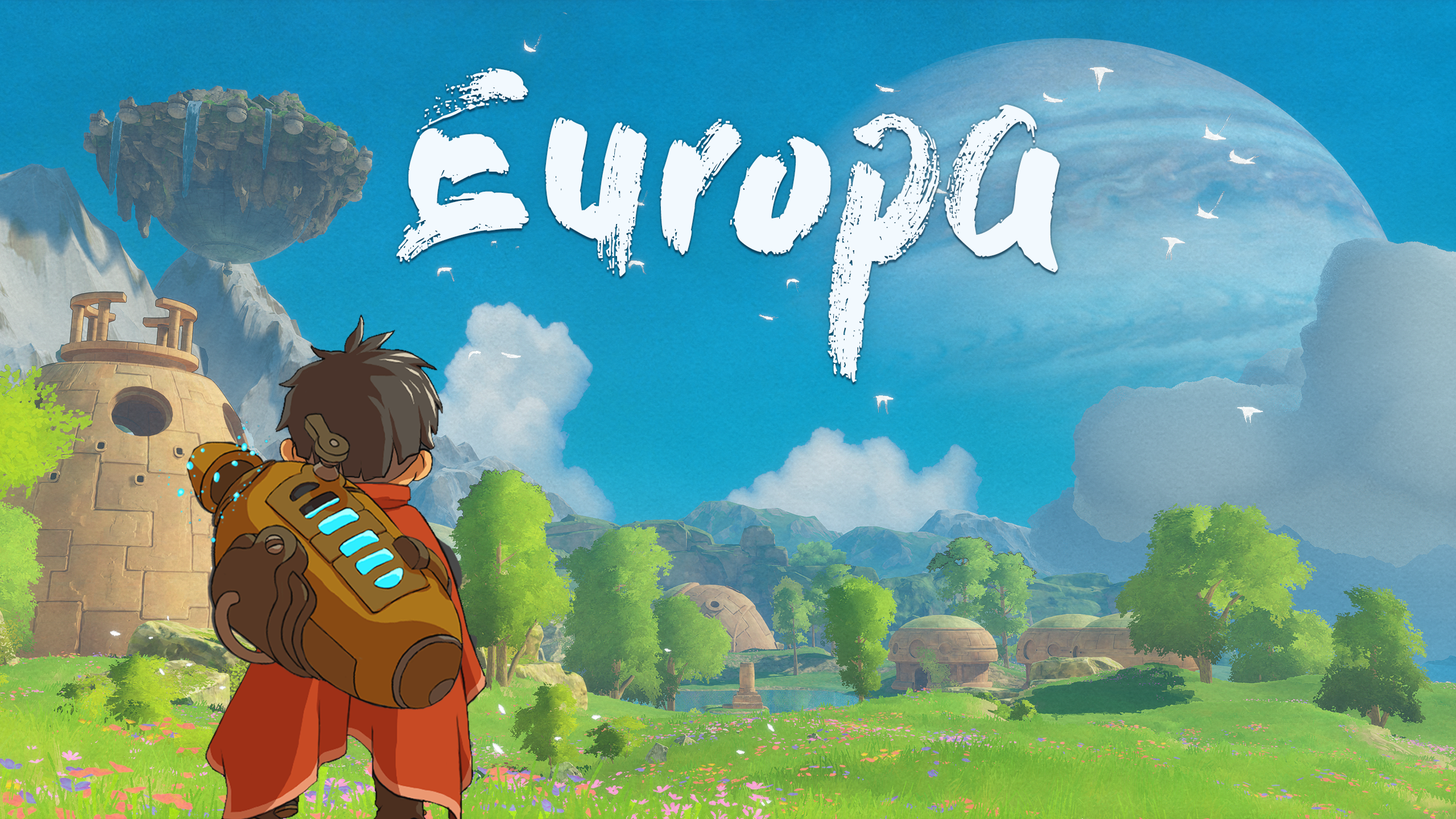Europa
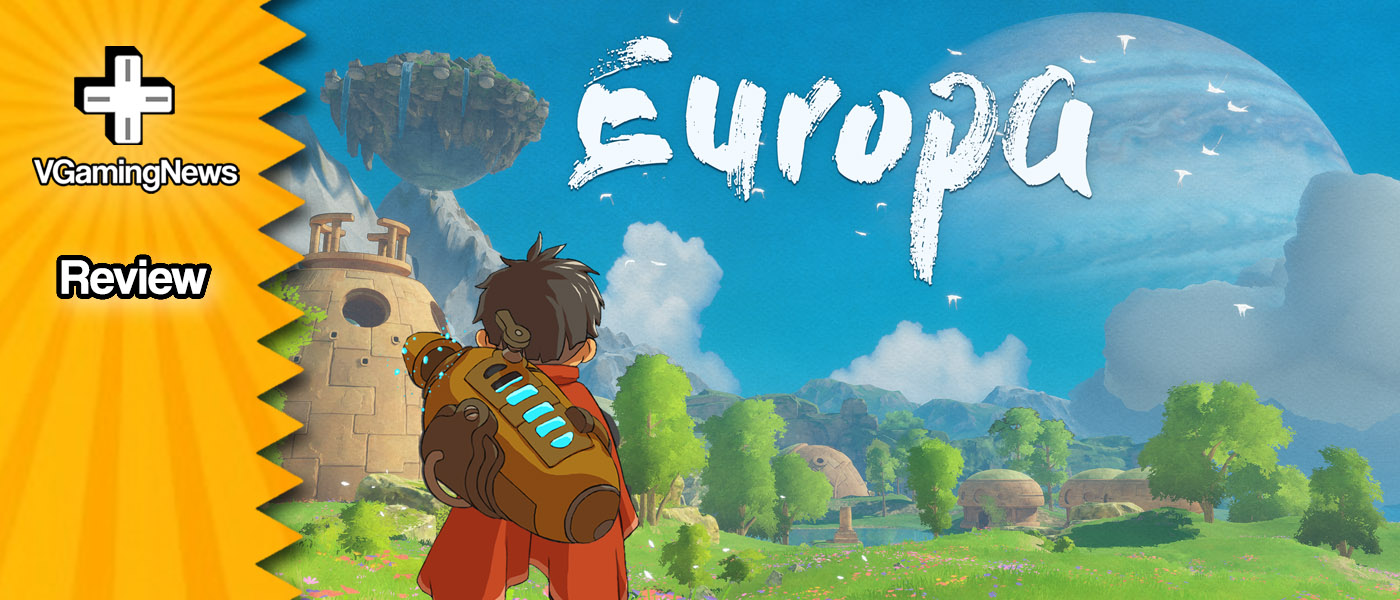
Europa, the debut title from Novadust Entertainment, is the kind of passion project that I love to see come to fruition. The brainchild of Helder Pinto, art director of such huge titles as Diablo 3 and Overwatch, Europa offers a smaller, more intimate canvas for his artistic vision and one he’s been working on alongside his ‘day job’ since 2017. Pulling in a group of friends to help him realise his idea, the game represents everything that ‘hobbyist’ writers and artists strive for – the product of his imagination now stands proudly out in the universe, eager for others to connect with it.
First impressions were certainly impressive. The visuals showcased in the trailers are beautiful, offering up watercolour visions of enormous landscapes, teeming with wildlife and mysterious golems, and a young boy swooping through obstacles and skating over water as an epic score peels out over the top. The premise too is incredibly intriguing; you play the role of Zee, an android child exploring the abandoned world of Europa, a moon of Jupiter, which was once colonised by humans but has since returned to nature. Driven by the journals of your lost father, you’re coaxed towards a mysterious floating island, hinted to be the last bastion of humanity in a lost paradise.
Count me all the way in.
At a Glance
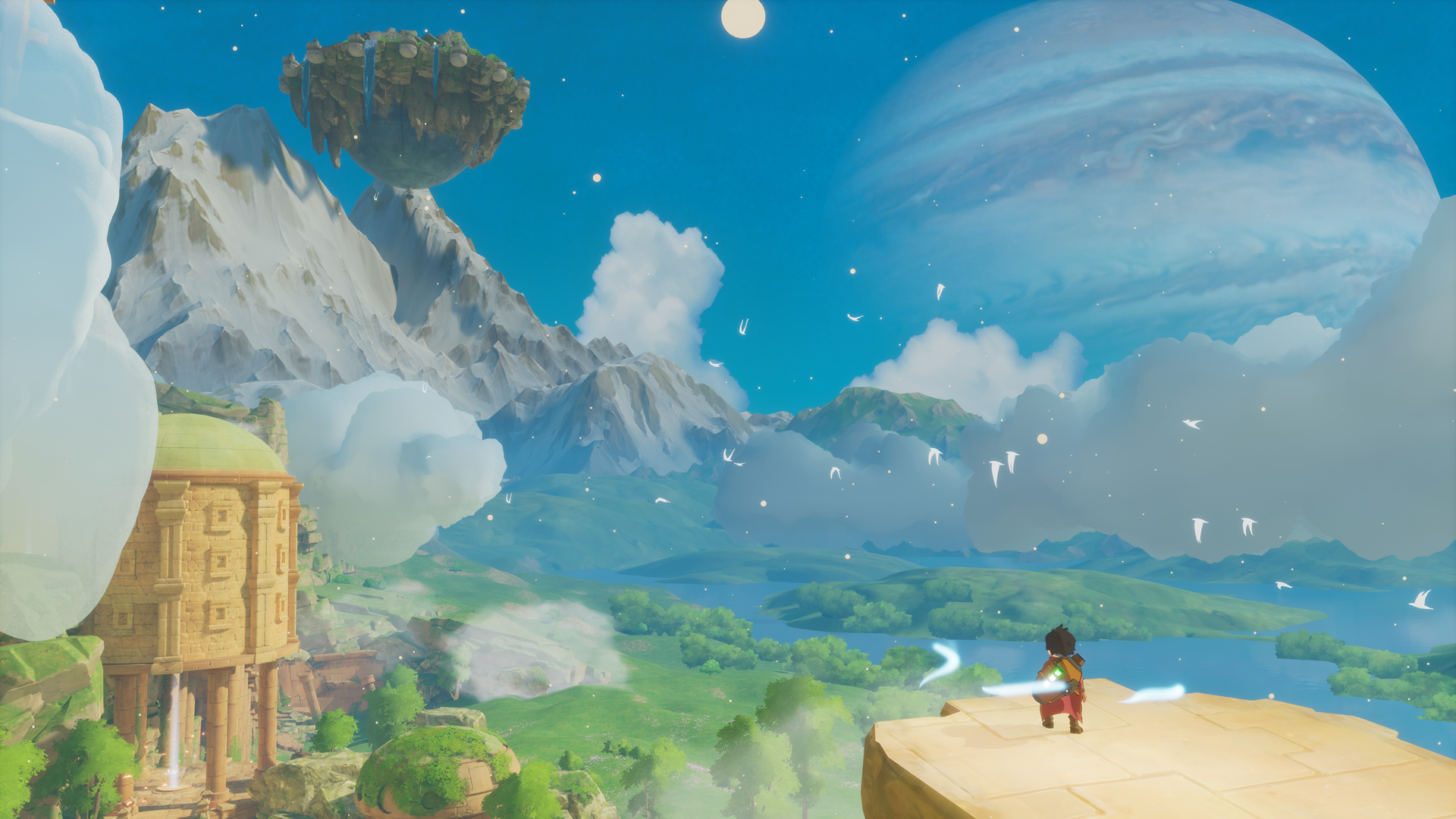
Positives |
Negatives |
+ Masterclass in atmospheric music + Beautifully diverse biomes and fauna + Self contained, movie length, adventure |
– Heavy controls and odd physics lead to ponderous gameplay – Enemies hinder, rather than advance, the enjoyment – Story lacks any real progression from start to finish |
Available on: |
|
Getting hands on with the game though, I sadly found that not everything was as idyllic as it looked, as technically, there are some bumps in the road. In just the first few moments, it was plain to see that the textures weren’t loading swiftly, and it’s jarring to see the visuals change suddenly, right before your eyes. The graphics too, which admittedly do look great at a distance, are blurry and out of focus at closer ranges, and the colours look overexposed, even in handheld mode on the OLED model Switch. Not the best start.
After a short introduction, you’re quickly left to your own devices. Things feel rather directionless, and the only real order of business is to navigate Zee from A to B, solving lightweight puzzles and collecting upgrades for his Zephyr jetpack along the way. Besides making your way to the fabled floating island, the real driver is to collect the scattered pages of a journal, which offer up explanations of the setting and a short history of Europa, establishing your relationship as father and son. Along the way, you’ll explore the various biomes of the moon and make sketches of the passing wildlife, made up of semi-organic robots known as Gardiners, and native-to-Earth species that emigrated alongside humankind.
You’re encouraged to get around by using the aforementioned jetpack – a handy bit of kit that can be charged up by moving through bubbles of energy before blasting you into the air. I’d argue that you don’t use the jetpack to actually ‘fly’ (most of the time); instead, it’s more of a ‘falling with style’ type of scenario, if I can borrow a quote from a famous toy cowboy. You can use the energy stored in your jetpack to get some elevation, but it’s only a few short seconds before your battery is drained and you start gliding your way back to earth. Instead, you’re better served to get up in the air before letting out short bursts of energy to help you glide, allowing you to travel great distances before touching the ground again. In certain areas, you’re encouraged to swoop through energy bubbles along the way, topping up your tank and keeping you afloat indefinitely, which makes for some lovely traversal. While the camera isn’t perfect and the controls are a little laboured, I found it relaxing swooping through the air. The jetpack’s style gives a certain undulating pattern to the flight which made me feel a bit like Peter Pan; a forever child whimsically pirouetting on the wind before coming to rest on some high perch to look out over the world below.
But where the airborne movement feels freeing and enjoyable, handling our android buddy on the ground is anything but. Controlling Zee on terra firma feels incredibly heavy and sluggish. For such a little dude, Zee has a turning circle of a hearse and I can best describe the pace as ‘ponderous’ (which may be being generous). Most strange though are the jumping mechanics, which feel odd, to say the least. Holding the jump button puts Zee into a sort of low hover mode, but equally, you also have to hold down the button to jump more than a few inches. This results in every hop, skip and jump being preceded by this awful greasy feeling, where you’re sliding around on the platform with very little traction. All told, it adds up to Zee handling like a wheelie bin on an air hockey table, which doesn’t make for a very pleasant experience.

I found the laboured ground movement a big problem, as chunks of the game take place in environments that naturally sap the energy from your jetpack, forcing you to travel on foot to complete bits and pieces of rather mundane platforming. Europa would have been better served if your jetpack slowly refilled when you were on the ground, encouraging you to get airborne again as soon as possible. I’d have the platforming elements done away with altogether, and perhaps replaced them with some aerial agility challenges instead, emphasising the positives and minimising the negatives in getting around.
Another strange decision was to include enemies in Europa, which seems counterproductive to the melancholy tale of discovery underpinning the game. There are only a few Gardeners that are aggressive towards Zee, and each of their attacks manifests by draining your jetpack energy. Since there’s no way to fight the robots (aside from turning some of them off using laughably oversized buttons), as well as the fact that Zee can’t die, the enemies bring very little to the game except the annoyance that they leave you waddling around on the ground like a bumblebee with a busted wing. The games’ lore does make their appearance make sense, but I think it would be addition by subtraction if the ‘threats’ were taken out entirely, or simply viewed from a distance as a narrative device.
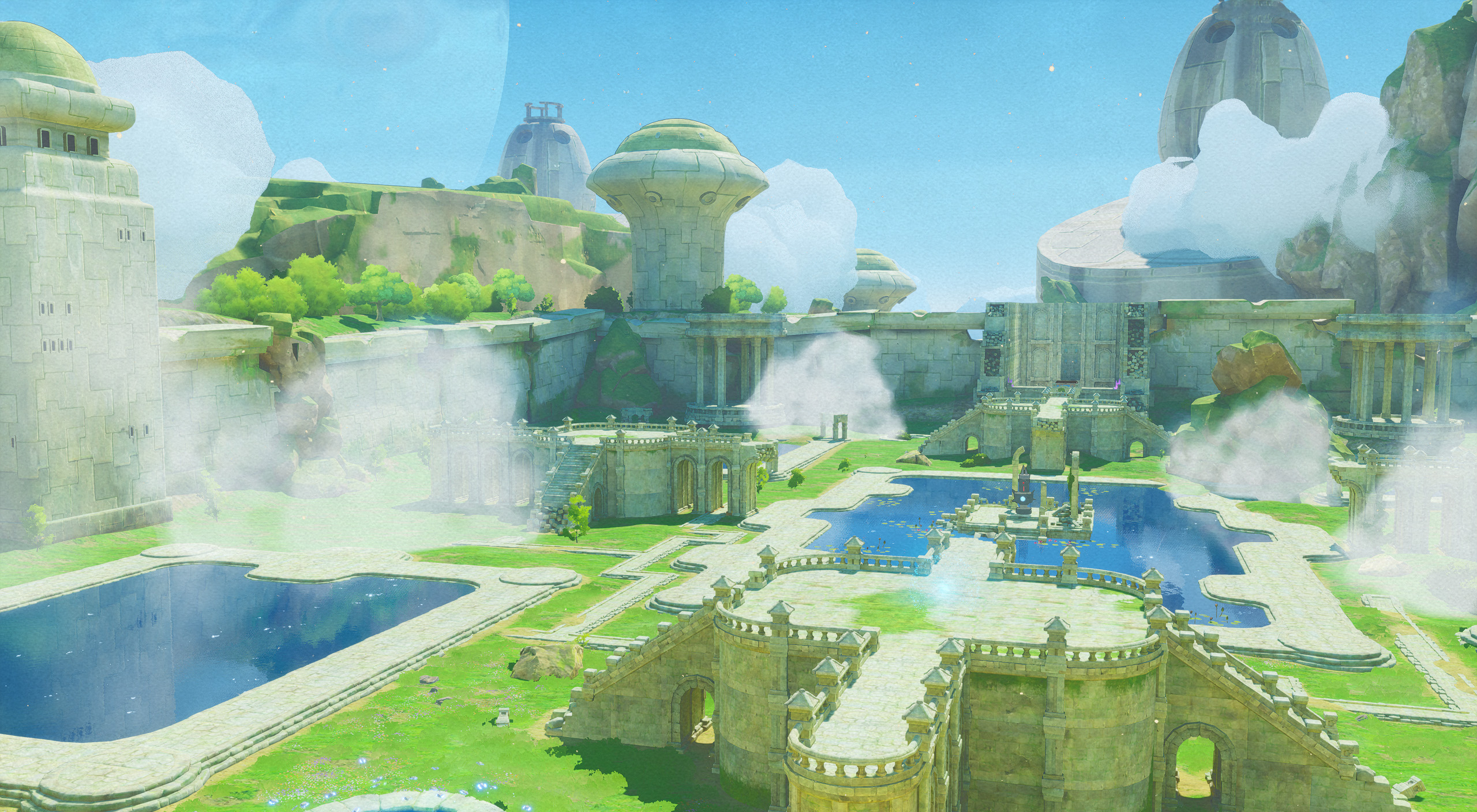
The story of Europa is a sombre tale that’s as relevant today as it will ever be; through the various journal entries, you’ll learn about humans migrating to Europa before selfishly mistreating their new environment and the other beings they share it with. Hearing the pages read aloud adds real weight to the subtext, and also helps inject some genuine fatherly warmth, which might have been lost with the written words alone. But while Europa shares a poignant message of respecting the world around you, I didn’t feel like there was a huge amount of story progression from start to finish. Perhaps it’s my fault for expecting some great revelation as Zee finally reached the island, but it’s actually much more straightforward than that, and as such, I found the finale a little disappointing. Much of what you learn is heavily hinted at (even early on in the game), and while the journals add more detail, Europa lacks that eureka reveal which would make it a much more memorable experience, in my opinion.
Arguably, it’s the soundtrack that does much of the heavy lifting in the storytelling department, as your exploration is magnificently scored from beginning to end. Mostly made up of haunting piano melodies, enchanting flutes, and mysterious strings, composer Matthew Thomason exquisitely toys with your emotions as you traverse the landscapes of Europa. Tonally, the music and voice-overs work in tandem tremendously, helping to build themes of deep reverence and heartfelt regret that are genuinely touching throughout.

I cruised through Europa in about two-and-a-half hours, which felt about right for the tale being told and the mechanics used to deliver it. If it were any longer there’s a risk players would become tired of the sombre rhetoric or fed up with the lumbering movement, and I think Europa is as successful as can be by being a movie-length outing. In fact, while I’ve shared my criticisms of the game, I would love to see a version of Europa on the big screen. In a different medium, without the distractions of a controller, I think the beautiful animation, powerful music and thought provoking message has the potential to move a mainstream audience.
Europa isn’t quite the boundless adventure that I was expecting. The joyful aerial exploration is held back by portions of lead-heavy ground traversal, slowing the gameplay to a crawl and sapping enjoyment from the experience. The visuals are striking at a distance but fail to hold up to closer scrutiny, making the decision not to make the game an entirely fly-by experience all the more baffling. Underpinned by a meaningful message that’s delivered with real heart, and boasting an incredibly powerful soundtrack, Europa, sadly, feels like an agonising near-miss.
In the interest of full disclosure, VGamingNews was provided with a copy of the game in order to conduct this review.
Thanks for taking the time to read our review, If you’d like to support us further, please consider buying us a coffee!


